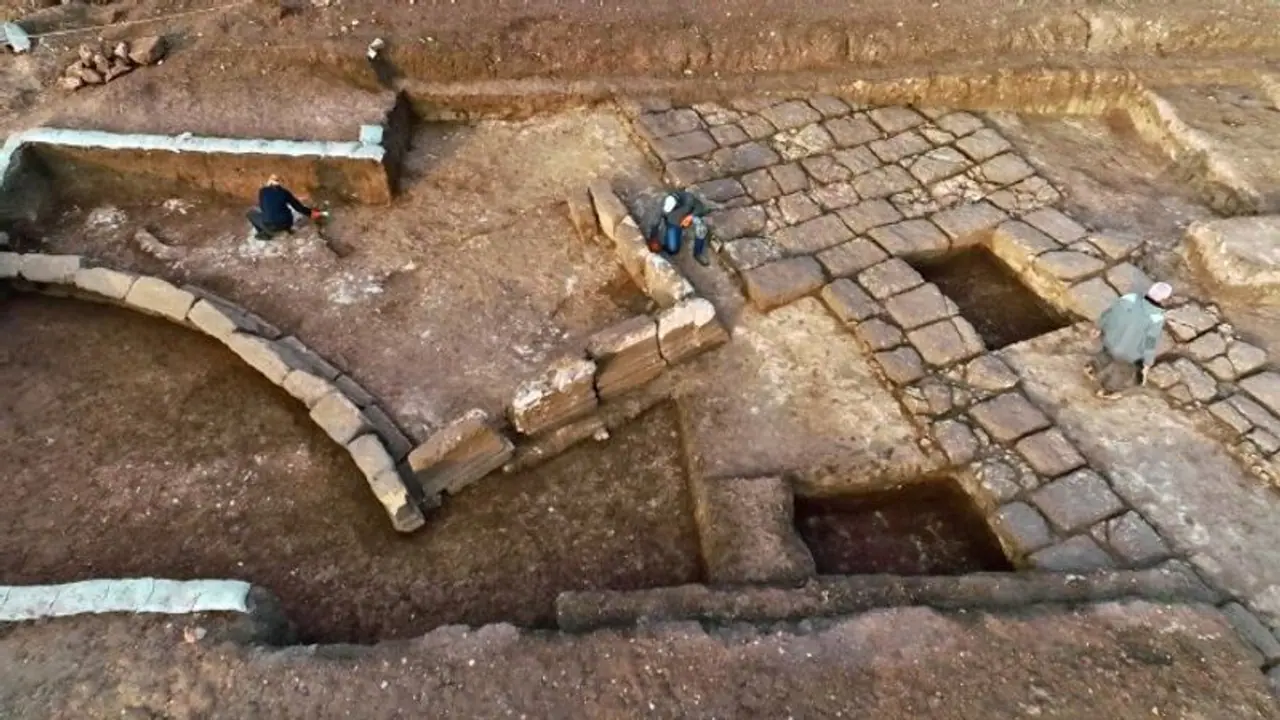Discovery of an ancient Roman legionary base at Tel Megiddo sheds light on military infrastructure and artifacts spanning 1,800 years, enriching Israel's historical narrative.
The Israel Antiquities Authority on Wednesday declared the discovery of an ancient Roman legionary base in Northern Israel, dating back 1,800 years. Unearthed at the base of Tel Megiddo, the excavation sheds light on the military infrastructure and presence of the Roman VIth ‘Ferrata’ Iron Legion, according to the Antiquities Authority. Tel Megiddo, or Megiddo, commands a strategic position overlooking the Jezreel Valley, a crucial intersection of ancient trade routes linking Egypt and Mesopotamia. Its historical significance spans millennia, rendering Tel Megiddo one of the most extensively explored sites in the region.

Unveiled among the findings are segments of the Via Pretoria, the primary road within the camp, alongside a semicircular-shaped podium and stone-paved spaces integral to a substantial public structure. The Israel Antiquities Authority notes that the remarkable dimensions of the legionary base, stretching 550 meters in length and 350 meters in width, mark it as an unparalleled discovery in the region.
“The unique contribution of the results of this research project lies in the rarity of such archaeological discoveries. While Roman military camps are known in Israel, they are temporary siege camps, or small camps belonging to auxiliary divisions. None compares with the entire complex of the legionary base, as has been uncovered in the archaeological excavations at Legio, next to the Megiddo Junction,” said excavation director Dr Yotam Tepper.
“The Roman Legion camp at Legio served as a permanent military base for over 5,000 soldiers for more than 180 years. It was a strategic hub from which distances along the Roman Imperial roads to major cities in the North were measured and marked,” he added.
The excavation has also yielded a plethora of artifacts, including coins, fragments of weapons, pottery shards, and glass pieces, alongside a significant quantity of stamped roof tiles utilized for diverse construction purposes.
Initial surveys of the camp area, conducted using ground-penetrating radar, revealed that the entire base lay beneath the wheat fields of Kibbutz Megiddo.
Tel Megiddo, with a history of continuous habitation spanning over 5,000 years, holds several mentions in the Bible. Referred to as "Armageddon" in Christian texts, the site is now a national park recognized by the United Nations Educational, Scientific and Cultural Organization (UNESCO) as a World Heritage Site.
Eli Eskosido, director of the Antiquities Authority, said, “The proximity of the Roman legionary base to the National Park of Megiddo, recognized as a World Heritage Site, and also to one of the earliest Christian prayer halls known in the world, discovered by the Israel Antiquities Authority within the Megiddo Prison compound, provide potential to enhance the tourist experience at this central location at the gateway into the Galilee.”
